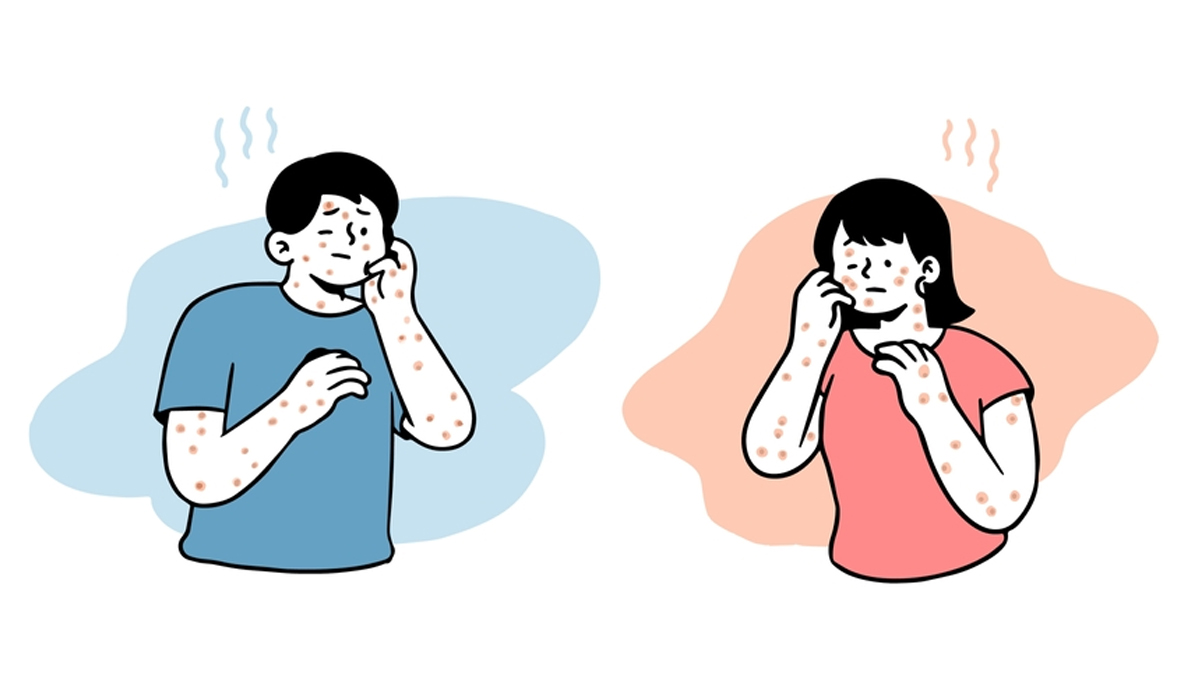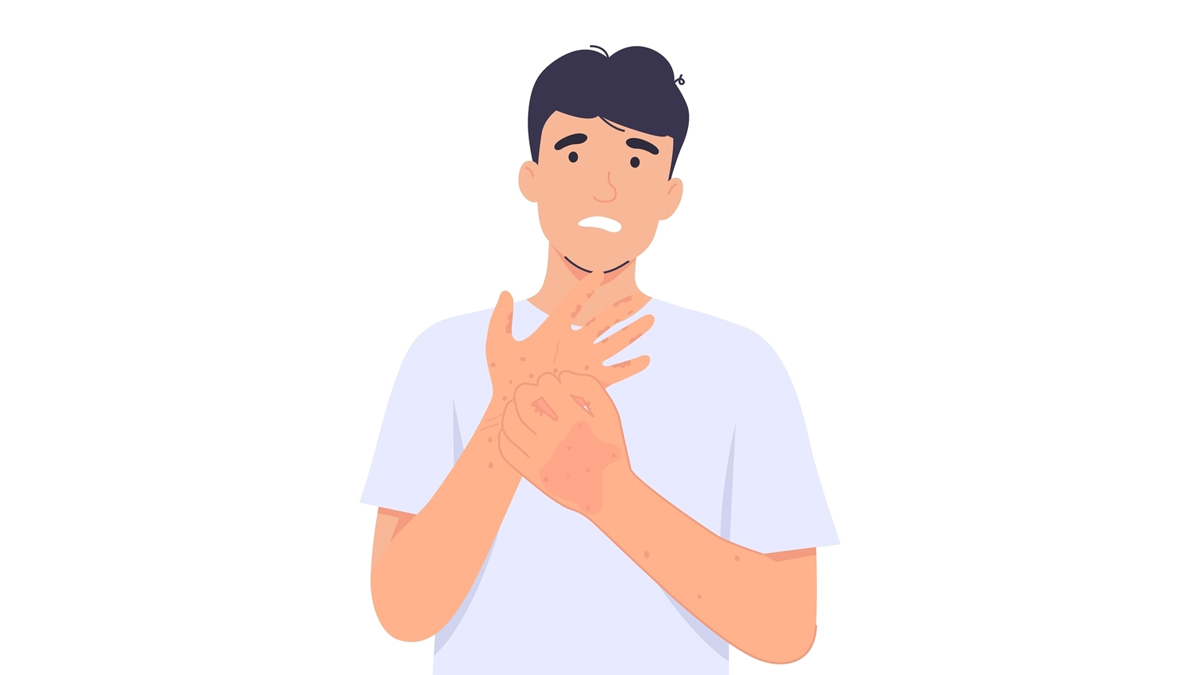
As the recent outbreak of Mpox (formerly known as monkeypox) continues to spread globally, understanding the virus and its effects is crucial for prevention, treatment, and recovery. This virus is characterised by a painful rash, swollen lymph nodes, and fever and can lead to severe illness and lingering complications in some individuals. The World Health Organization (WHO) has even declared Mpox a public health emergency of international concern (PHEIC). We reached out to our experts Dr Honey Savla, Internal Medicine, Wockhardt Hospitals, Mumbai Central and Dr Shivam Sharma, Head of Department and Consultant, Department-Internal Medicine and Diabetology, SHALBY Sanar International Hospitals, who answered Frequently Asked Questions (FAQs) on this infectious disease.

The World Health Organization (WHO) classifies Mpox as an infectious disease caused by the monkeypox virus. This virus can result in a painful rash, swollen lymph nodes, and fever. While most individuals recover completely, some may experience severe illness. Mpox symptoms usually appear within a week but can start anywhere from 1-21 days after exposure. These symptoms typically last 2-4 weeks, but they may persist longer in individuals with weakened immune systems.
FAQs On Monkeypox (Mpox)
1. What are the first symptoms of Mpox?

"The initial symptoms of Mpox include a rash and swollen lymph nodes, particularly around the neck, ears, and armpits. The rash, lesions, or multiple vesicles (blister-like lesions) can appear anywhere from head to toe, including the face, arms, and legs, although it commonly starts on the trunk" said Dr Sharma.
2. What are the lasting effects of Mpox?
"Long-term effects of Mpox can include scarring from skin lesions and potential complications like proctitis or ocular issues. Some patients may experience residual pain or psychological effects. Long-term outcomes are still being studied, and effects can vary widely among individuals," said Dr Savla.
Also Read: WHO Calls For Emergency Meet As Deadliest Mpox Virus Spreading Rapidly In African Countries
3. How long does Mpox Last?

"Monkeypox typically lasts between 7-14 days. The incubation period, or the time from exposure to the appearance of symptoms, ranges from 1-3 days, with the disease progressing over 10-14 days. The contagion period is usually between 10-12 days, with treatment extending through this time," said Dr Sharma.
4. Is Mpox Painful?
Monkeypox can be painful, particularly when lesions appear. Pain can be localised to the trunk, face, arms, or legs, depending on where the vesicles are present. The pain may vary in intensity but is generally manageable with supportive care.
5. What are the last stages of Mpox?
In the last stages of monkeypox, lesions crust over and dry out, forming scabs. These scabs eventually fall off, leaving new skin underneath. The patient’s systemic symptoms generally subside, and recovery typically follows, although some may experience lingering effects or complications.
6. Is monkeypox itchy like chickenpox?

If you’re wondering whether monkeypox is as itchy as chickenpox, the answer is that it can be, but it varies from person to person. "Like chickenpox, monkeypox lesions can cause itchiness as the rash goes through different stages. This can be uncomfortable, but there are ways to manage it. Your healthcare provider might recommend topical treatments or medications to help ease the itch," highlighted Dr Savla.
7. How to get rid of Mpox scars?
To fade Mpox scars, consider using topical treatments like silicone gels, vitamin E, or hydroquinone creams. Regularly moisturising the skin and applying sunscreen can also help. Consulting a dermatologist for personalised treatments, such as chemical peels or laser therapy, may be beneficial.
8. Are you immune after monkeypox?
"After recovering from monkeypox, individuals are likely to have some immunity to the virus. However, immunity may not be lifelong or complete, and reinfection, although rare, is possible. Ongoing research will provide more information about long-term immunity," added Dr Savla.

9. What are the four stages of monkeypox?
The four stages of monkeypox are:
- Macules: Flat red spots.
- Papules: Raised bumps.
- Vesicles: Fluid-filled blisters.
- Pustules: Pus-filled lesions that crust over
10. What does stage 1 monkeypox look like?
"In stage 1 of monkeypox, the rash typically starts as flat, red macules. These lesions progress to papules, then to vesicles, and eventually to pustules before forming crusts. The rash often begins on the face and spreads to other body parts," added Dr Savla.
Also Read: Mpox: A Public Health Emergency – How India Can Prepare For An Outbreak
11. What foods are good for Mpox?
To help manage Mpox, it's important to maintain a balanced diet rich in vitamins and minerals to support immune function. It's also important to stay hydrated and consume soft, bland foods to prevent irritation if lesions are present in the mouth or throat. You should prioritise nutrient-dense foods like fruits, vegetables, and lean proteins.
12. How do you recover from monkeypox fast?
"Recovery from monkeypox typically occurs within 14 days as it is a self-limiting disease. Supportive treatments are used to alleviate symptoms, such as fever and sore throat. It's crucial for patients to follow medical advice and monitor their symptoms closely," said Dr Sharma.
13. Is there a vaccine for monkeypox?

"Yes, there is a vaccine for monkeypox, primarily the smallpox vaccine, which provides cross-protection. The JYNNEOS vaccine is approved for monkeypox and is available in some regions. Vaccination is especially recommended for high-risk individuals and those exposed to the virus," added Dr Savla.
14. What is the treatment of Mpox?
"The treatment for Mpox primarily involves symptomatic care and isolation. Depending on the type of lesions and symptoms, specific medications might be prescribed. For instance, antibiotics may be used to treat secondary infections or sore throats," said Dr Sharma.
15. Is the sun good for monkeypox?
Sun exposure is generally not recommended for monkeypox. This is because direct sunlight may irritate the skin and exacerbate symptoms or delay healing. It is important to protect lesions from sun exposure and maintain good skin care during recovery.
16. Can I shower with monkeypox?
"Yes, you can shower with monkeypox, but it’s crucial to avoid direct contact with the rash and use a separate towel. Ensure good hygiene and clean the area thoroughly to prevent the spread of the virus," said Dr Savla.
"Individuals diagnosed with monkeypox can continue to shower. However, it's important to avoid scrubbing the skin harshly. Using mild soaps and gently washing the affected areas can help prevent further irritation," added Dr Sharma.
17. How to Avoid Getting Mpox?
Preventing monkeypox involves taking several precautionary measures. Avoiding crowded places and isolating yourself if you notice any rash are crucial steps. Since monkeypox can spread through bodily fluids, such as sweat, mucus, and blood, practising good hygiene and minimising close contact with infected individuals are essential.
[Disclaimer: This article contains information provided by experts and is for informational purposes only. Hence, we advise you to consult your own professional if you are dealing with any health issues to avoid complications.]
Also watch this video
How we keep this article up to date:
We work with experts and keep a close eye on the latest in health and wellness. Whenever there is a new research or helpful information, we update our articles with accurate and useful advice.
Current Version